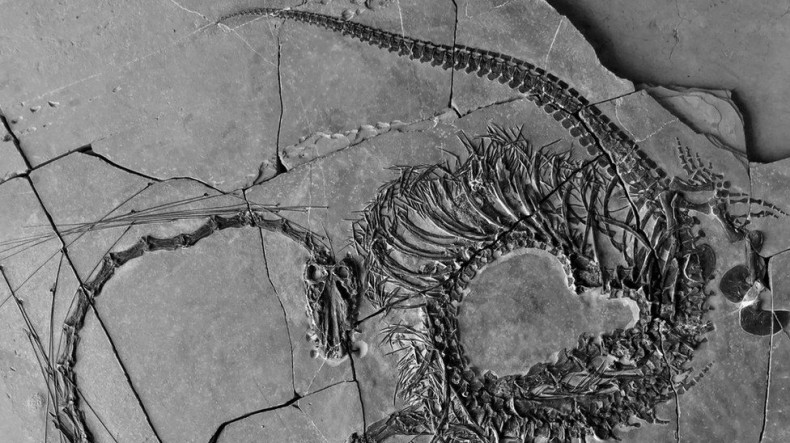
Scientists announce discovery of 240 million year-old 'dragon' fossil
Scientists have revealed a new, remarkably complete fossil – a 16ft (5m)-long aquatic reptile from the Triassic period, BBC News reports.
The creature dates back 240 million years and has been dubbed a “dragon” because of its extremely long neck.
It is called Dinocephalosaurus orientalis, a species that was originally identified back in 2003.
This spectacular new fossil has allowed scientists to see the full anatomy of this bizarre prehistoric beast.
Dr Nick Fraser, from National Museums Scotland, who was part of the international team that studied the fossil, said this was the first time scientists had been able to see it in full. He described it as “a very strange animal.”
“It had flipper-like limbs and its neck is longer than its body and tail combined,” he said.
The researcher speculated that a “long, bendy and flexible neck” might have provided a hunting advantage – allowing Dinocephalosaurus orientalis to search for food in crevices under the water.
The fossil was discovered in ancient limestone deposits in southern China.
“This discovery just adds to the weirdness of the Triassic,” Dr Fraser told BBC News. “And every time we look in these deposits, we find something new.”
The paper describing the animal is published in full in the academic journal Earth and Environmental Science: Transactions of the Royal Society of Edinburgh.
Newsfeed
Videos






























